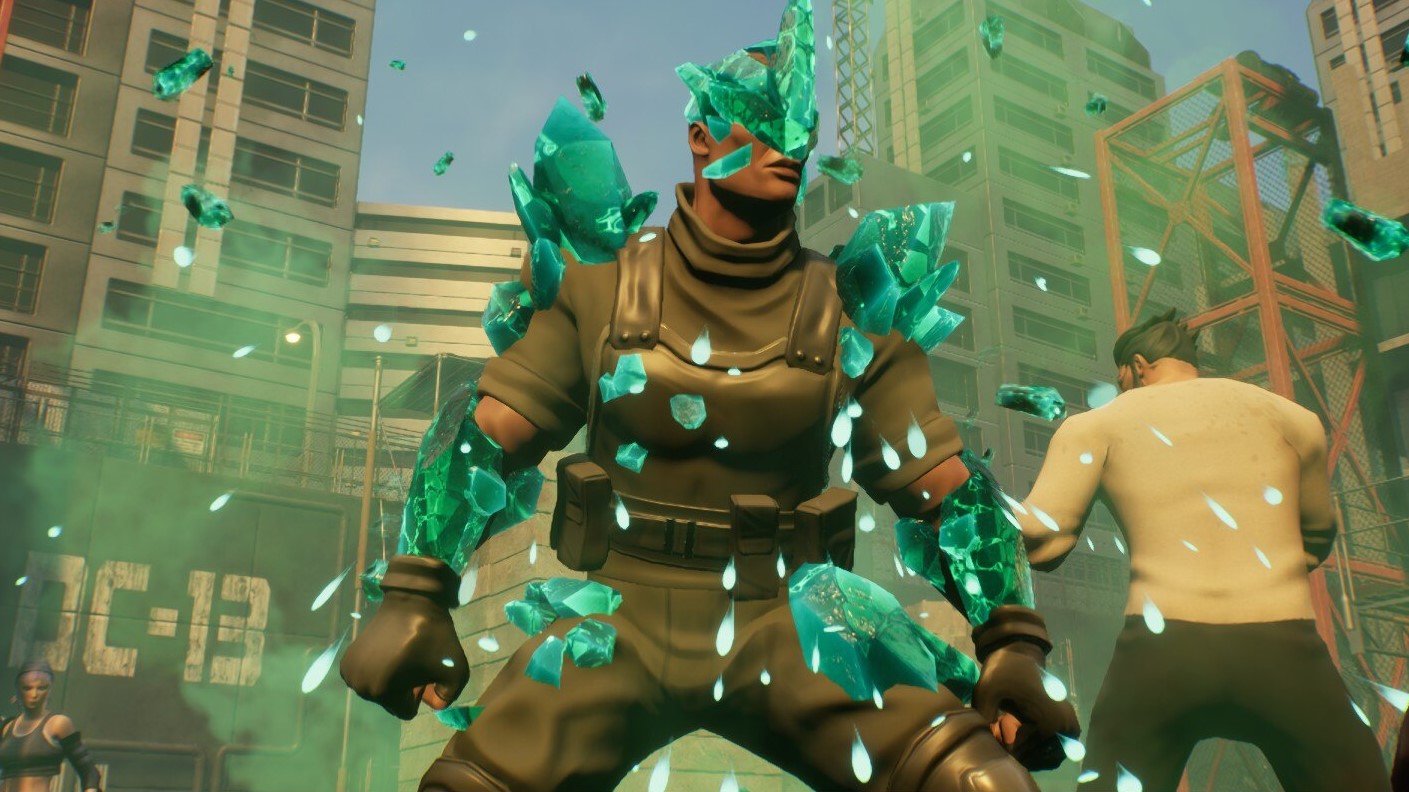Our Verdict
An awkward story doesn't hold Capes back from being one of the best turn-based strategy games of recent years.
PC Gamer's got your back
What is it? A turn-based strategy game about superheroes rebelling against a dystopian regime.
Release date May 29, 2024
Expect to pay TBA
Developer Spitfire Interactive
Publisher Daedalic Entertainment
Reviewed on Nvidia Geforce RTX 3080, AMD Ryzen 9 5900X, 32GB RAM
Steam Deck Verified
Link Official site
All the best superhero teams have one thing in common: everyone has their role. While Wolverine's charging in, claws flashing, Cyclops is up on a ridge shooting down lasers, Iceman is zipping around freezing foes, Jean Grey is delving into a supervillain's mind, and Colossus is body-blocking energy blasts.
That's what your squad of superheroes feels like in Capes as you're directing them in turn-based battles. From teleporter Rebound to psychic Mindfire to speedster Mercurial, each character is wonderfully distinct, and securing victory means combining their unique powers to enhance their strengths and cover their weaknesses.
The "Capes" are not quite your typical superheroes, however. They're based in King City, a near-future metropolis that's been ruled by a team of supervillains for decades. Under their oppressive regime powers are outlawed, with any civilian showing signs of having them quickly rounded up for a grisly fate. Your crew is less like a classic crime-fighting team, and more like a resistance cell—young supers who've managed to escape capture and now fight back against the dystopian government to try and free their home.
The path to revolution consists of a series of story-driven turn-based strategy missions—always a punch-up of some kind, but often with a twist, such as stealth elements, a race against time, or civilians in need of protection. They're not easy—it's the kind of game where when you first load up a mission and see an absolute horde of enemies arrayed against you, it's natural to think "How is this even possible?". Half an hour later, after several attempts, you finally stand surrounded by defeated thugs thinking "How did I pull that off?".
The key to victory is always in getting the most out of every member of your team. Their identities are extreme by design. Facet, for example, clad in crystal armour, can take assault rifle bursts without flinching, whereas Rebound can be downed with just a few punches—but Rebound's ability to teleport gives her mobility unlike anyone else on the team, and her backstab attacks do enormous damage. When they're together, Facet's abilities become a toolset for keeping her out of trouble—taunting foes, trapping others with crystal growths, and protecting her with crystal shields keeps her safe enough to get in position to strike key targets.
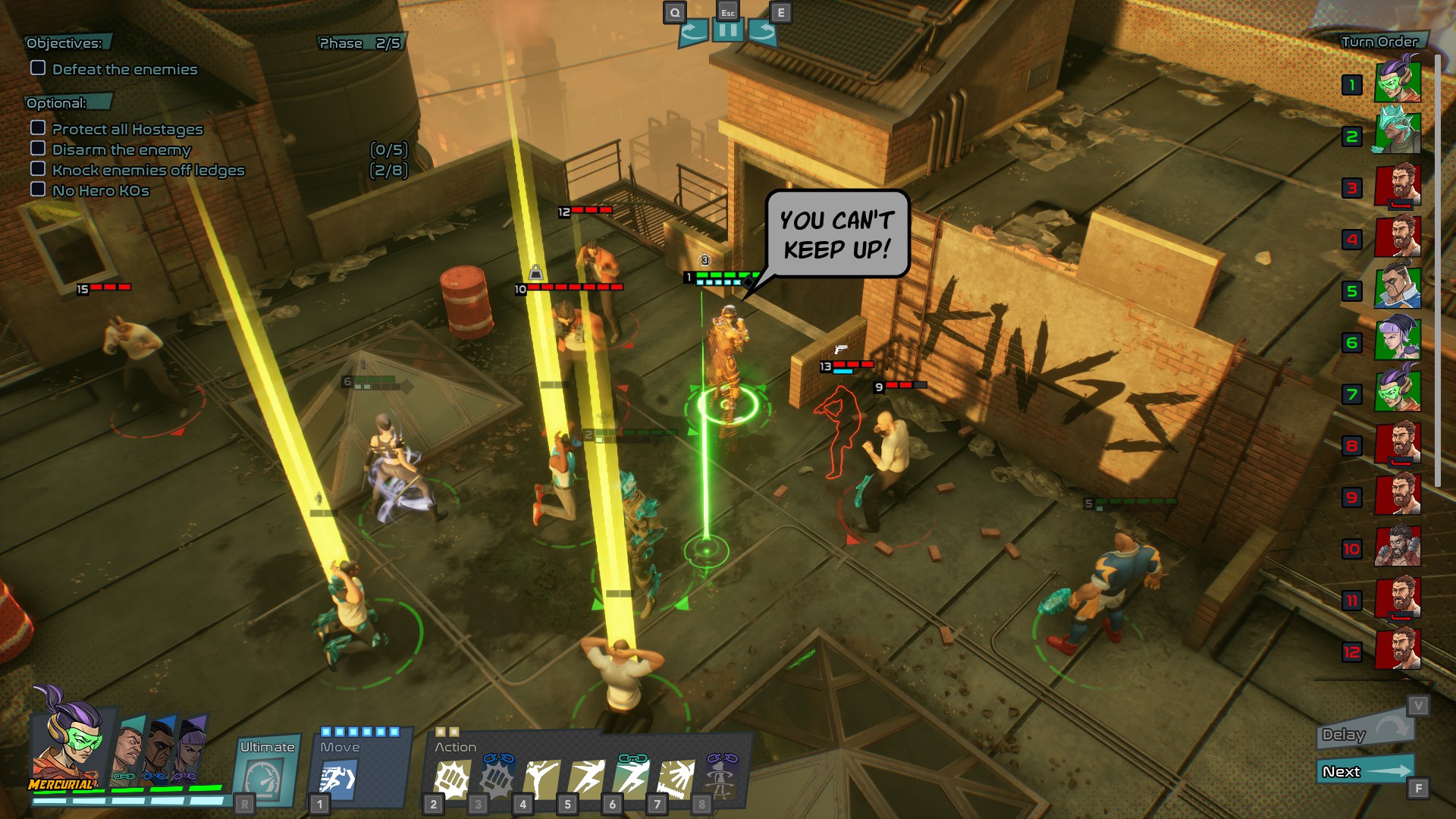
With eight heroes available to unlock (you'll usually choose four to bring into each mission), and increasingly dangerous enemies arrayed against you, the web of possible combos becomes a wonderfully layered combat puzzle. All sorts of complimentary mechanics add to your options. Team Ups, for example, let heroes directly combine their powers if they're physically close enough, unlocking new versions of abilities. Use Mercurial's Dash while she's near the pyrokinetic Ignis and she'll leave a trail of flame behind her; backstab a target with Rebound when Mindfire's close and he'll mind control them into turning around to ensure she deals maximum damage.
Each hero also has a different way of charging Ultimate energy, the juice they need to unleash their most powerful attack, further encouraging you to commit each character to their role. Facet, for example, is such a dedicated tank that he charges up every time he gets hit, whereas the storm-calling Weathervane gets a charge for every extra target he's able to catch with his chain lightning attack. Finally unleashing an Ultimate—setting Rebound off on a teleport frenzy where she backstabs everyone in sight, or unleashing a huge storm with Weathervane—is a lovely mid-mission dopamine hit, rewarding you for getting the best out of that character.
Super troopers
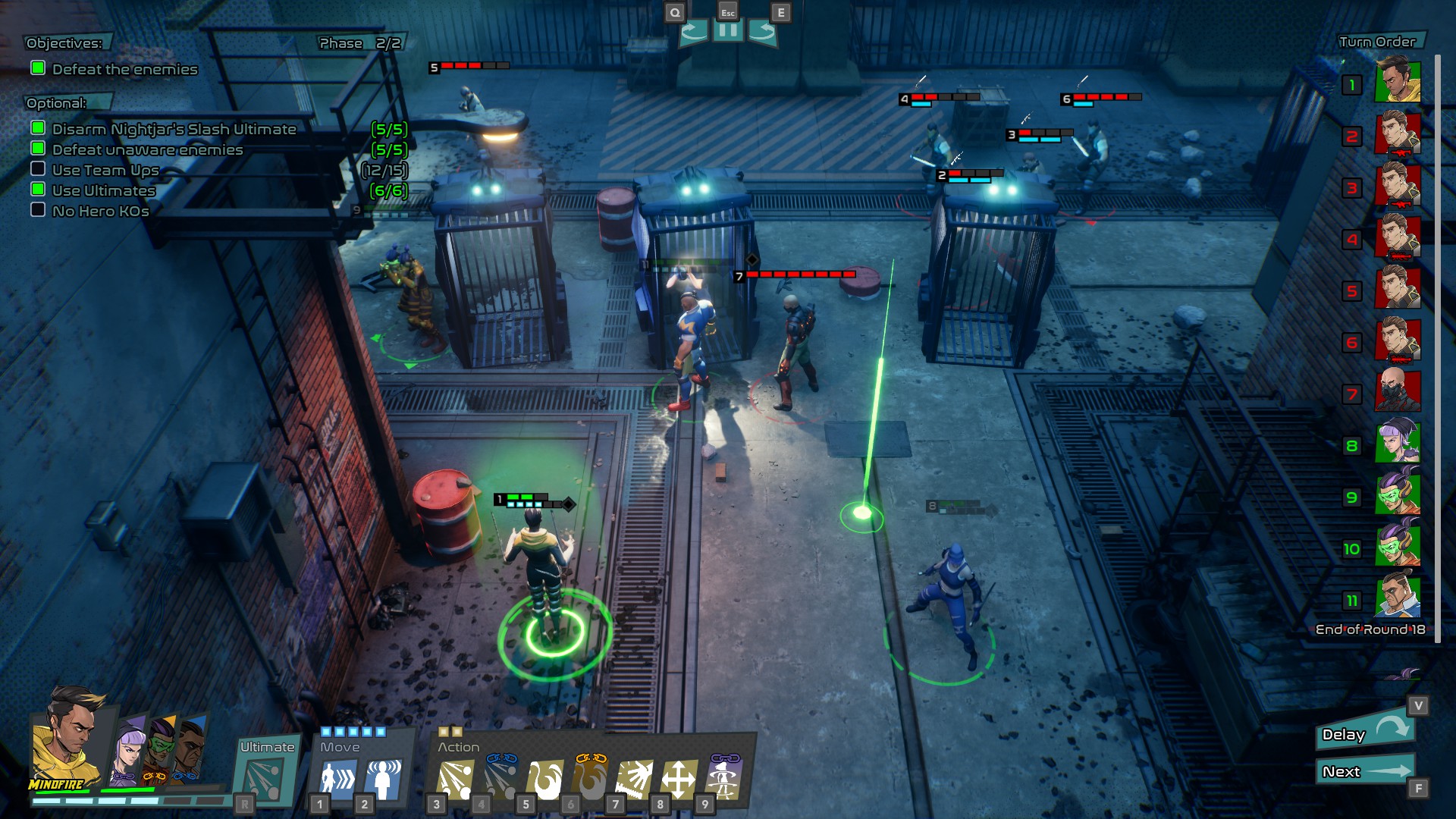
When you're feeling a little frazzled after a particularly complicated boss fight or a careful stealth mission, that's when the game will throw you a big dumb fight against an overwhelming horde and let you unleash satisfying havoc on them.
Between missions heroes can enhance their abilities back at base, and you're free to replay past missions hoping to complete more of the bonus objectives, allowing you to grind for level ups if you wish. But crucially, upgrades never flatten the differences between the characters. Rebound, for example, has three health—no matter how good she gets at teleporting and takedowns, she will never get any tougher, even as enemies become increasingly numerous and dangerous. That means that she's only a couple of blows away from death from the start of the game right to the end, keeping her hit-and-run playstyle intact throughout.
It's these kinds of clever decisions that keep Capes' battles brilliantly tactical and riveting all the way through. Great pacing helps there, too—when you're feeling a little frazzled after a particularly complicated boss fight or a careful stealth mission, that's when the game will throw you a big dumb fight against an overwhelming horde and let you unleash satisfying havoc on them. It almost never lets up on the challenge, but developer Spitfire Interactive is great at tickling different parts of your strategic brain as you play, rather than hammering on the same one to the point of frustration.
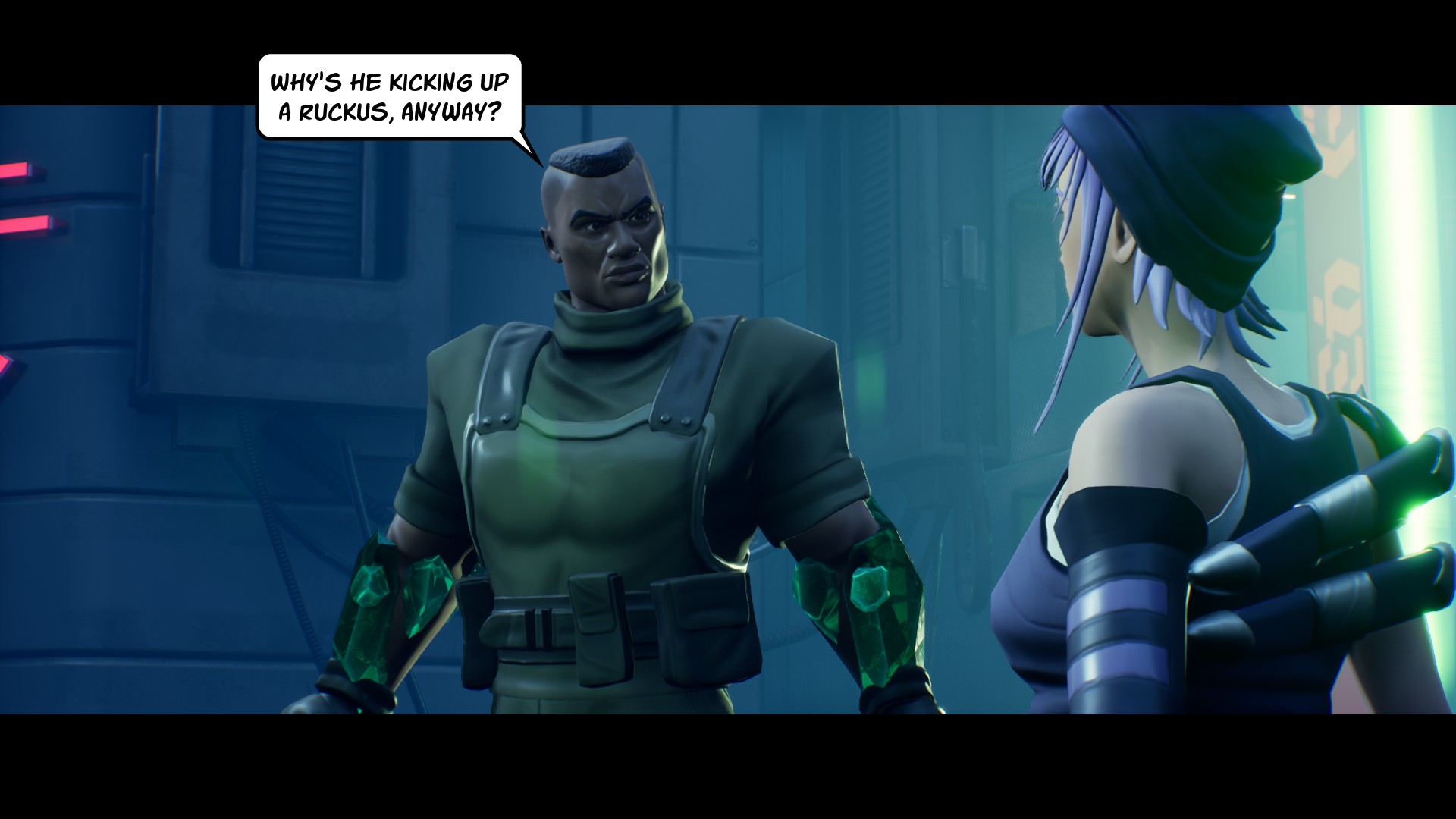
Where the pacing unfortunately isn't quite as deft is in the story. There are a lot of cutscenes in Capes, but very few of them really go anywhere—act 2 of 3 takes up the majority of the run time, and consists of far too much meandering around without any clear idea of what the characters are trying to achieve, before suddenly act 3 brings things to an abrupt close.
Broad themes of capitalism gone awry and systemic injustice work well enough as a framework, but individual story threads within that often feel incongruous. There's much agonising from the characters about whether it's ok to kill supervillains or not, for example—that's an overused superhero trope at the best of times, but in a story about a violent insurrection told in the medium of lengthy turn-based fights, it doesn't fit at all. You'll take down 30 thugs by electrocution, setting them on fire, and hurling chunks of concrete at their heads, only for Rebound, whose fighting style is entirely based around sticking foot-long knives into people's backs, to give you a lecture about when lethal force is appropriate. It's absurd, and only becomes more so as you discover quite how irredeemably evil the main supervillains they're so concerned with sparing actually are.
Unfortunately, lackluster presentation doesn't do the story any favours either. There's a plastic quality to the characters, which combined with stiff animation makes them look like action figures. In fights, that's fine—the game visually conveys what it needs to make combat run smoothly. But frequent cutscenes zoom in for face-to-face chats, forcing you to see every visual flaw as the heroes emote unconvincingly to the inconsistent dialogue.
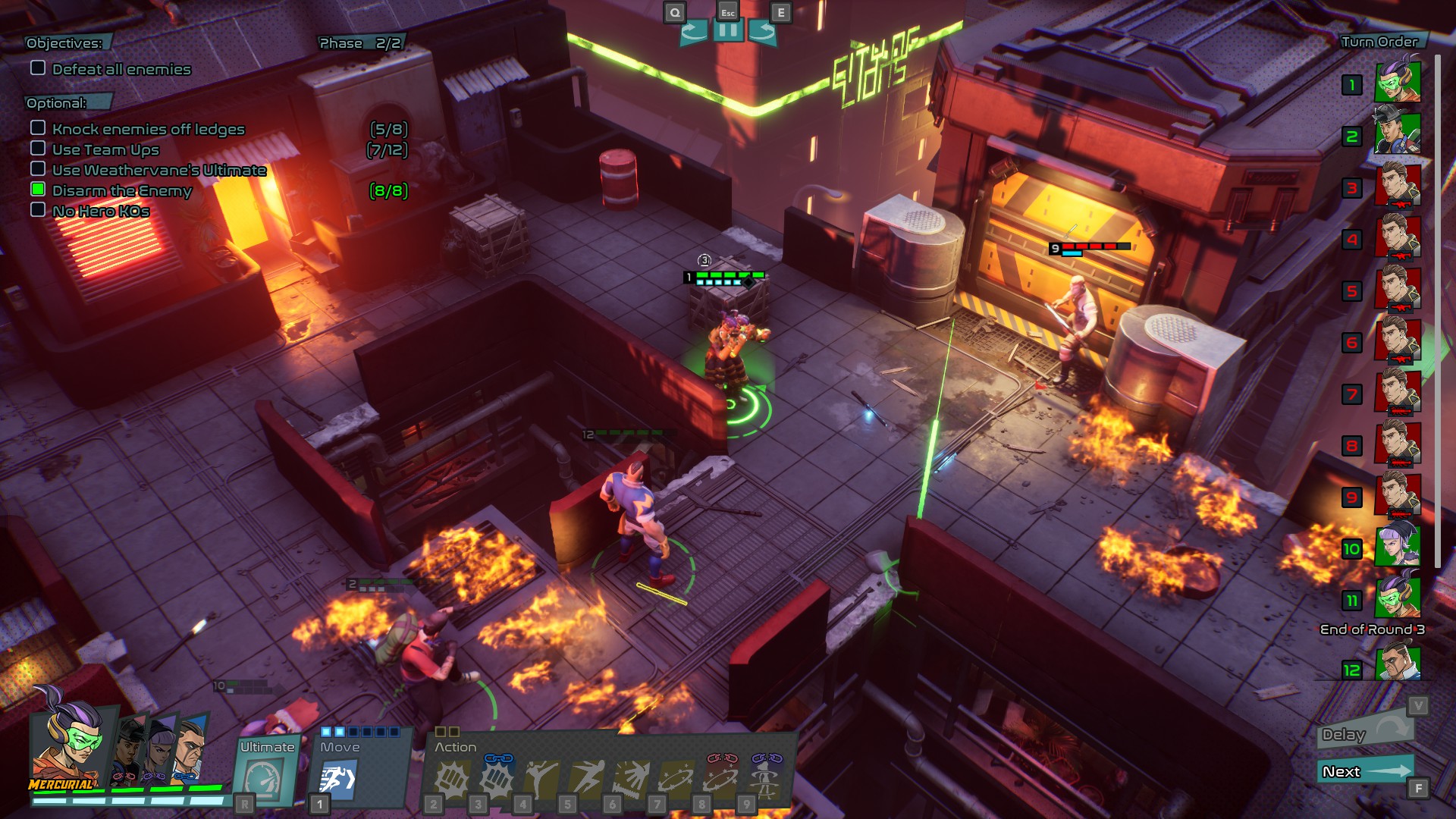
Really, though, it's not the story that pulls you along—it's the depth of strategy on offer. The drama isn't in the cutscenes, it's in every nail-biting turn as you try and figure out the perfect combo to get you out of another fine mess. It can be a serious challenge—if you're the kind of person who hates the idea of reloading the same mission multiple times looking for the right approach, this probably isn't for you. But meet it on its own terms and Capes will give you 20-30 hours of wonderfully substantial and engrossing superhero strategy.
An awkward story doesn't hold Capes back from being one of the best turn-based strategy games of recent years.

Formerly the editor of PC Gamer magazine (and the dearly departed GamesMaster), Robin combines years of experience in games journalism with a lifelong love of PC gaming. First hypnotised by the light of the monitor as he muddled through Simon the Sorcerer on his uncle’s machine, he’s been a devotee ever since, devouring any RPG or strategy game to stumble into his path. Now he's channelling that devotion into filling this lovely website with features, news, reviews, and all of his hottest takes.
